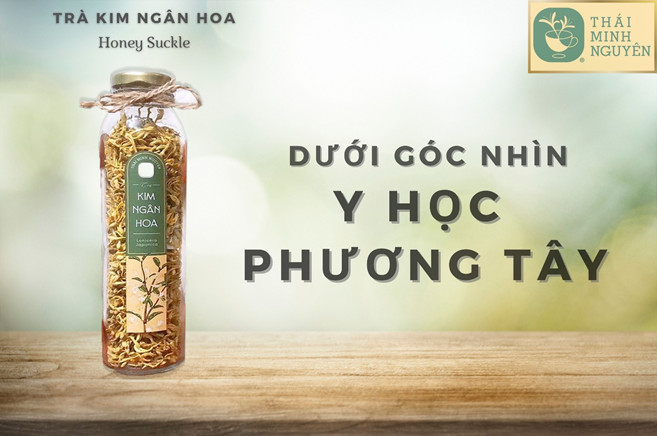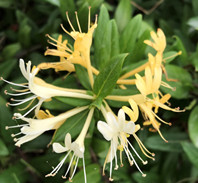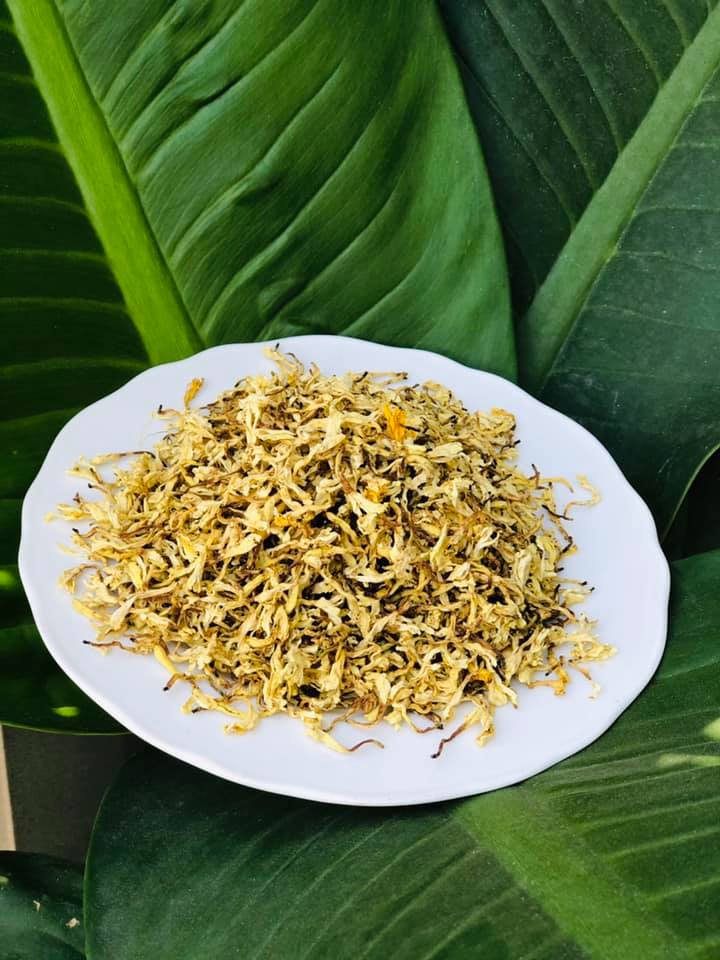Company news, Healthcare
Valuable herbal medicine Kim Ngan Hoa, From the perspective of Western medicine
PRECIOUS HERBAL MEDICINE KIM NGAN HOA (HONEYSUCKLE) FROM THE PERSPECTIVE OF WESTERN MEDICINE:
1/ History and Origins:
KIM NGAN HOA is highly revered in many cultures worldwide primarily for its healing properties. Roman physician Pedanius Dioscorides and 16th-century English herbalist John Gerard recommended the use of KIM NGAN HOA to treat liver, gallbladder, and respiratory diseases. In ancient Chinese medicine, this flower has been used as a cooling herb due to its detoxifying properties. Indigenous North Americans have a tradition of using this herb as a poultice to alleviate skin conditions such as inflammations, ulcers, and skin infections.
2/ The Benefits of Kim Ngan Tea?
a/ Combatting the flu virus:
In China, researchers have claimed that a natural component of honeysuckle called MIR2911 helps to repel the flu virus A. This component possesses antibacterial and antiviral properties, acting like an antibiotic to aid in the treatment of seasonal flu as well as some deadly diseases including avian flu and swine flu.
Due to its antibacterial and anti-inflammatory effects, honeysuckle is recommended for patients suffering from pneumonia, bronchitis, and various respiratory infections, including common colds and influenza.
b/ Reduce swelling and pain:
Because honeysuckle has pain-relieving and anti-inflammatory properties, researchers have suggested and incorporated honeysuckle into the treatment of conditions related to poor digestion such as dysentery and colitis. It is also beneficial in reducing joint stiffness and swelling caused by low-grade arthritis.
c/ Anti-cancer properties:
Clinical studies have confirmed that this herbal remedy is rich in flavonoids, luteolin, loganin, and sweroside: These compounds help slow the growth of cancerous tumors. Therefore, consuming honeysuckle tea regularly improves the body’s immune function and helps prevent the harmful effects caused by free radicals.
d/ Urinary disorders:
he compounds in honeysuckle act as a diuretic, helping to reduce the risk of kidney stone formation by preventing the deposition of urate crystals in the urinary tract or kidneys. This aids in reducing gout and supports the treatment of impaired kidney function.
e/Beneficial for diabetes
Daily consumption of honeysuckle is very beneficial for regulating blood sugar levels, thereby reducing the risk of diabetes. Diabetic patients can also benefit from its intake as this herb helps maintain a good balance of blood sugar levels.
f/ Helps reduce constipation:
Due to its mild laxative properties when consumed, this herbal compound creates favorable conditions for intestinal peristalsis and reduces constipation. Consequently, honeysuckle aids in reducing bloating, abdominal fullness, and belching.
g/ Reducing fever, cooling the body, and promoting the excretion of toxins through sweating:
Honeysuckle contains diaphoretic compounds, which stimulate the opening of sweat pores and cool the body by inducing sweating. It not only prevents the body from overheating during fever but also aids in detoxification. Therefore, by promoting sweating, this beverage acts as a natural detoxifier.
h/Other uses:
As a mouthwash: Kim Ngan Hoa tea can be used as a mouthwash to alleviate gum bleeding and mouth ulcers. It helps reduce throat infections when gargled for a few minutes.
i/ Topical application: Similar to a poultice, it is very effective for itchy and inflamed skin.
Honeysuckle helps eliminate toxins and harmful impurities from skin cells, thus reducing the risk of developing acne, blackheads, and other skin conditions.
k/ Side effects / Safety of honeysuckle herb:
Although there aren’t many reports of adverse reactions when using this herbal tea, short-term use of honeysuckle (under 6 months) has been reported as safe. Individuals prone to allergies should limit long-term consumption. Those scheduled for surgery should also limit use as it may affect the body’s blood clotting mechanism.
l/ During pregnancy:
Pregnant and breastfeeding women are both advised to avoid drinking this type of tea because there isn’t much scientific evidence to support its use during this time. If used, consult your doctor.
m/ How to brew honeysuckle tea:
Step 1: Add 1-2 tablespoons of dried honeysuckle flowers to a pot.
Step 2: Pour 2.5 cups of boiling water into the pot.
Step 3: Stir well.
Step 4: Let the mixture steep for several hours.
Step 5: Add some sweeteners such as honey or sugar to taste (optional).
Note: The beverage can be refrigerated overnight and served cold with a few ice cubes.
Dr. Vũ Minh Tú


 Tiếng Việt
Tiếng Việt



